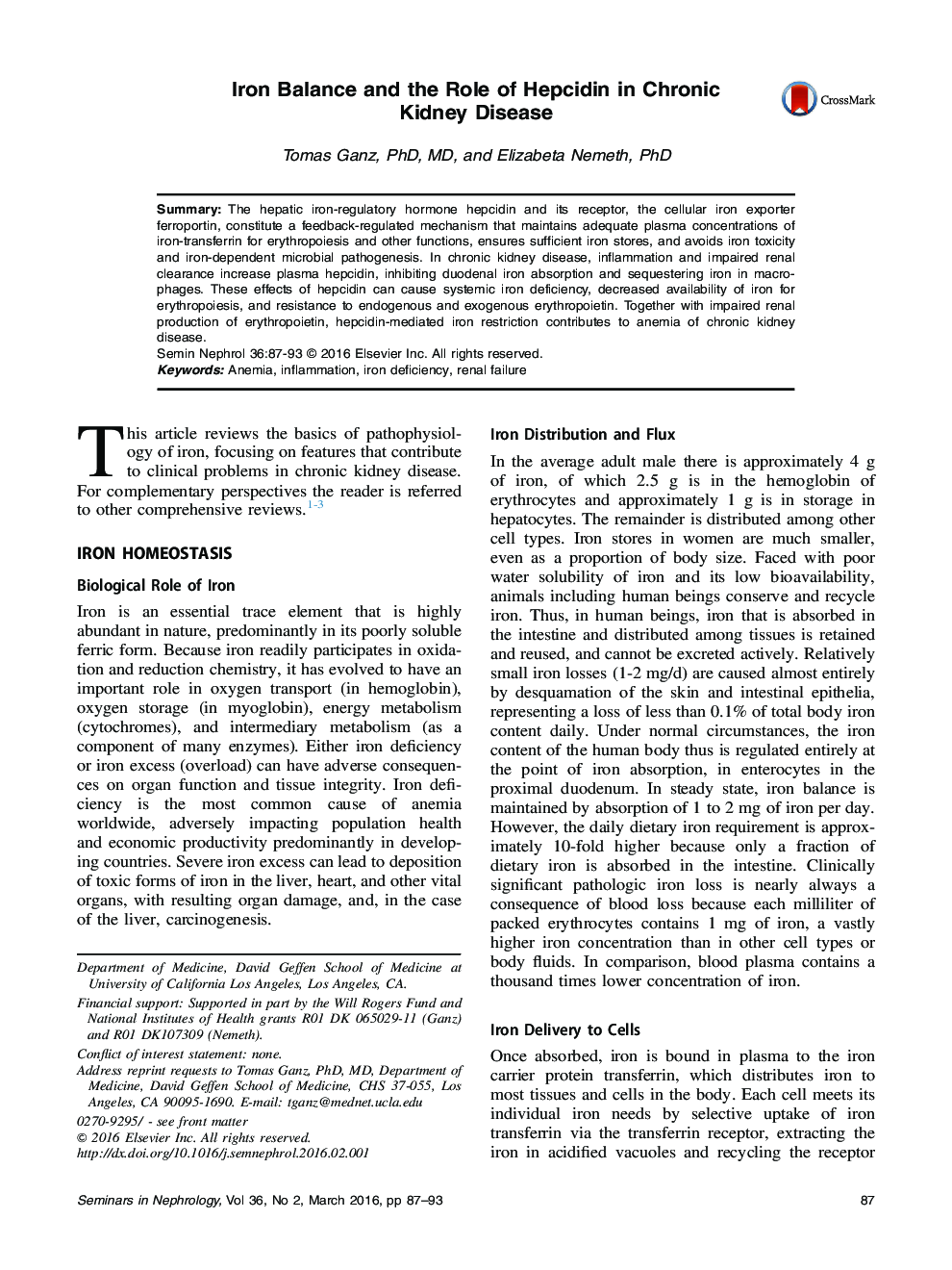| Article ID | Journal | Published Year | Pages | File Type |
|---|---|---|---|---|
| 3896302 | Seminars in Nephrology | 2016 | 7 Pages |
SummaryThe hepatic iron-regulatory hormone hepcidin and its receptor, the cellular iron exporter ferroportin, constitute a feedback-regulated mechanism that maintains adequate plasma concentrations of iron-transferrin for erythropoiesis and other functions, ensures sufficient iron stores, and avoids iron toxicity and iron-dependent microbial pathogenesis. In chronic kidney disease, inflammation and impaired renal clearance increase plasma hepcidin, inhibiting duodenal iron absorption and sequestering iron in macrophages. These effects of hepcidin can cause systemic iron deficiency, decreased availability of iron for erythropoiesis, and resistance to endogenous and exogenous erythropoietin. Together with impaired renal production of erythropoietin, hepcidin-mediated iron restriction contributes to anemia of chronic kidney disease.
